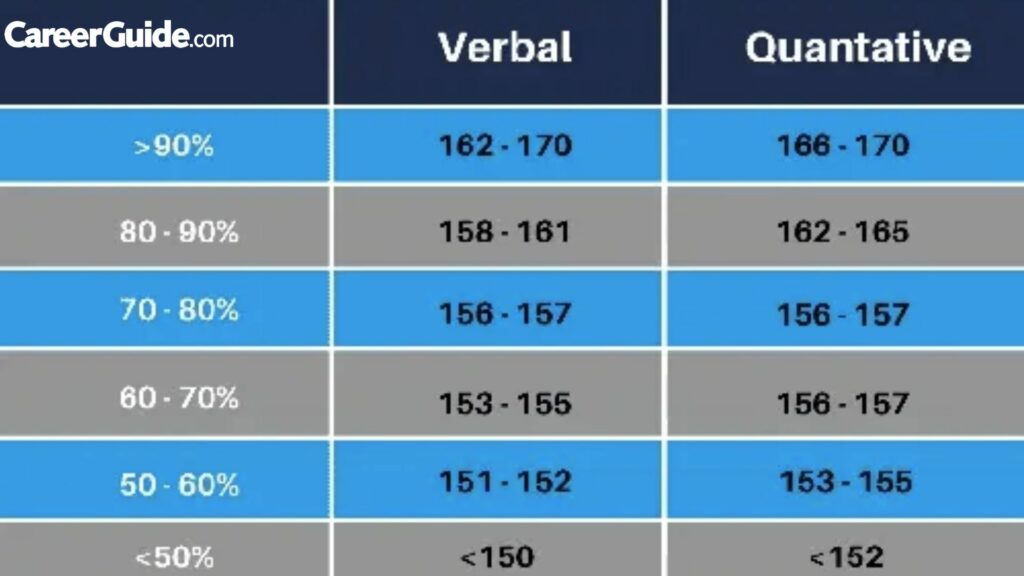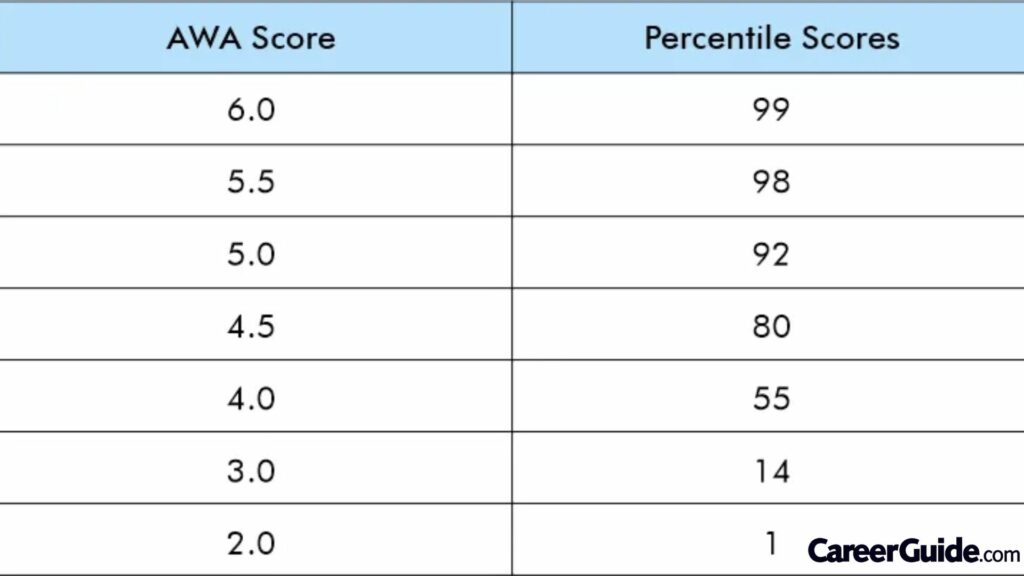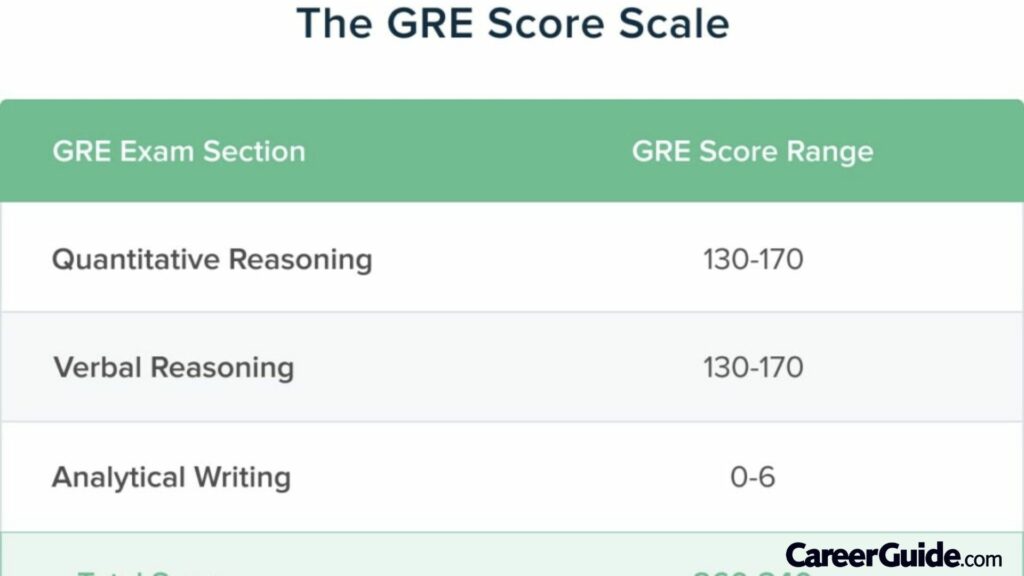GRE Exam 2023
- GRE
-
Jan 21
- Share post
GRE Highlights
The Graduate Record Examinations (GRE) is a standardized test that is required for many graduate school programs in the United States, as well as in other countries. The test is intended to measure a candidate’s verbal reasoning, quantitative reasoning, and analytical writing abilities.
The verbal reasoning section of the GRE consists of two types of questions: text completion and sentence equivalence. Text completion questions require the test-taker to fill in one or more blanks in a sentence with the appropriate word or phrase, while sentence equivalence questions require the test-taker to select two words or phrases that will complete a sentence in such a way that the sentence is grammatically correct and makes logical sense.
The quantitative reasoning section of the GRE consists of two types of questions as well: quantitative comparison and problem solving. Quantitative comparison questions require the test-taker to compare two quantities and determine which is greater or if they are equal, while problem solving questions require the test-taker to use mathematical reasoning and problem-solving skills to solve a problem.
The analytical writing section of the GRE requires test-takers to write two essays: one analyzing an issue and one analyzing an argument. The issue task requires the test-taker to take a position on an issue and support that position with evidence and examples, while the argument task requires the test-taker to evaluate an argument and discuss how well the argument is supported.
Overall, the GRE is a comprehensive test that assesses a candidate’s abilities in verbal reasoning, quantitative reasoning, and analytical writing. It is an important factor in determining a candidate’s suitability for graduate school programs, and as such, it is essential for candidates to prepare thoroughly for the test in order to achieve the best possible score.
Additionally, it should be noted that, while the GRE is often required for admission to graduate programs in the US and other countries, it is not the only factor that is considered. Factors such as the candidate’s undergraduate GPA, relevant work or research experience, and letters of recommendation are also taken into account. Additionally, many programs will have specific requirements, such as minimum test scores or a certain number of years of work experience, that must be met before a candidate is considered for admission.
GRE Eligibility Criteria

The Graduate Record Examination (GRE) is a standardized test required for many graduate school programs in the United States, as well as in other countries. In order to take the GRE, individuals must first meet certain eligibility requirements. These requirements vary depending on the type of test being taken, as well as the location and format of the test.
The most basic requirement for taking the GRE is that individuals must be at least 18 years of age on the test date. Individuals who are younger than 18 may be able to take the test with a written request from the candidate’s school principal or counselor.
Another important requirement for taking the GRE is that individuals must have a valid government-issued identification. This identification must be presented on the day of the test, and it must match the name that was used when registering for the test.
In addition to these basic requirements, there are several other requirements that may vary depending on the location and format of the test. For example, some test centers may have additional requirements such as fingerprinting or background checks. These requirements will vary depending on the test center and should be reviewed before the test date.
If individuals are taking the GRE at a location outside of their home country, there may be additional requirements. For example, individuals may need to provide proof of citizenship or a visa. The specific requirements for taking the GRE at an international test center can be found on the ETS website.
Lastly, if individuals are applying for accommodations, such as extra time or a separate room, there may be additional requirements. These requirements will vary depending on the type of accommodations being requested, and the specifics will be outlined in the ETS documentation.
In summary, the eligibility requirements for taking the GRE are relatively straightforward. The most basic requirement is that individuals must be at least 18 years of age on the test date and must have a valid government-issued identification. Additionally, there may be additional requirements depending on the location and format of the test, as well as any accommodations being requested. It’s important for individuals to review the requirements carefully before registering for the test to ensure that they meet all of the necessary qualifications.
GRE Exam Pattern

The Graduate Record Examination (GRE) is a standardized test that is required for many graduate school programs in the United States, as well as in other countries. The test is designed to measure a candidate’s verbal reasoning, quantitative reasoning, and analytical writing abilities. The test is divided into six sections, of which two are unscored research sections. The test pattern is as follows:
Verbal Reasoning: This section consists of 40 questions that must be completed in 60 minutes. The section measures a candidate’s ability to analyze and understand written material, reason and evaluate arguments, and identify relationships among words and concepts. The questions in this section are divided into two types: text completion and sentence equivalence.
Quantitative Reasoning: This section consists of 40 questions that must be completed in 70 minutes. The section measures a candidate’s ability to understand, interpret and analyze quantitative information, and to solve problems using mathematical concepts. The questions in this section are divided into two types: quantitative comparison and problem solving.
Analytical Writing: This section consists of two tasks that must be completed in 60 minutes. The section measures a candidate’s ability to articulate complex ideas clearly and effectively, and to support an argument with relevant examples and evidence. The two tasks are: analyze an issue and analyze an argument.
Unscored Research: This section is included to help ETS to test questions for future exams. It is not counted towards the candidate’s score.
Verbal Reasoning and/or Quantitative Reasoning: This section is similar to section 1 and 2, but the questions are experimental and are used to test future questions.
Quantitative Reasoning and/or Verbal Reasoning: This section is similar to section 1 and 2, but the questions are experimental and are used to test future questions.
The total testing time for the GRE is approximately 3 hours 45 minutes. There is a 10-minute break between the third and fourth sections of the test.
It’s important to note that the test pattern and format may vary depending on the location and format of the test. The computer-delivered test is offered year-round at testing centers around the world, while the paper-delivered test is only offered three times per year in areas where the computer-delivered test is not available. Additionally, the test format for the GRE Subject Tests is different from that of the GRE General Test.
In summary, the GRE is a comprehensive test that assesses a candidate’s abilities in verbal reasoning, quantitative reasoning, and analytical writing. The test is divided into six sections, of which two are unscored research sections. The test pattern includes 40 questions in verbal reasoning, 40 questions in quantitative reasoning, and two analytical writing tasks. The total testing time is approximately 3 hours 45 minutes with a 10-minute break between the third and fourth sections of the test. The format and pattern may vary depending on the location and format of the test, and it’s important to review this information before the test date.
GRE Score

The Graduate Record Examination (GRE) is a standardized test that is required for many graduate school programs in the United States, as well as in other countries. The test is designed to measure a candidate’s verbal reasoning, quantitative reasoning, and analytical writing abilities. The scores for the GRE are used by graduate schools to help determine whether a candidate is ready for graduate-level work.
The scores for the GRE are reported in several different ways. The first is the raw score, which is the number of questions that a candidate answered correctly. The raw score is then converted to a scaled score, which is a score that is adjusted to take into account the difficulty of the test and the performance of other test-takers.
The Verbal Reasoning and Quantitative Reasoning sections of the GRE are each scored on a scale of 130-170, in one-point increments. The Analytical Writing section is scored on a scale of 0-6, in half-point increments.
The Verbal Reasoning and Quantitative Reasoning sections are scored based on the number of questions answered correctly. There is no penalty for guessing on the GRE, so it is in the test-takers best interest to answer all the questions, even if they are unsure of the correct answer. The analytical writing section, on the other hand, is scored by trained readers who will evaluate the essay based on several factors, including the test-taker’s ability to articulate complex ideas, to use relevant examples and evidence to support the argument, and to demonstrate a clear and logical organization of the essay.
It’s important to note that the GRE scores are valid for five years. Additionally, the scores for the GRE General Test are reported separately from the scores for the GRE Subject Tests. The scores for the GRE General Test are sent to the graduate programs specified by the test-taker, while the scores for the GRE Subject Tests are sent only to the test-taker.
In addition to the scores for the individual sections of the test, a composite score is also reported. The composite score is an average of the scores for the Verbal Reasoning and Quantitative Reasoning sections. This composite score can be used by graduate schools as a general indicator of a candidate’s overall performance on the test.
It’s important to note that the scores for the GRE are just one factor that graduate schools consider when evaluating a candidate’s application. Other factors, such as the candidate’s undergraduate GPA, letters of recommendation, and personal statement, are also taken into account. Additionally, the scores that are considered competitive for one graduate program may not be competitive for another program. Therefore, it’s important for test-takers to research the requirements of the graduate programs they are interested in and to aim for scores that are competitive for those programs.
It’s also important for test-takers to understand that a good score on the GRE is not a guarantee of acceptance into a graduate program. A high score on the GRE is just one part of a complete application and will be considered along with other factors. Additionally, many graduate programs have a minimum score requirement for the GRE, so it’s important for test-takers to research the requirements of the graduate programs they are interested in.
In summary, the scores for the Graduate Record Examination (GRE) are used by graduate schools to help determine whether a candidate is ready for graduate-level work. The scores are reported in several different
GRE Scaled Score percentiles for General Test

The Graduate Record Examination (GRE) is a standardized test that is required for many graduate school programs in the United States, as well as in other countries. The scores for the GRE are reported in several different ways, including the raw score, the scaled score, and the percentile score.
The scaled score is a score that is adjusted to take into account the difficulty of the test and the performance of other test-takers. The Verbal Reasoning and Quantitative Reasoning sections of the GRE are each scored on a scale of 130-170, in one-point increments. The Analytical Writing section is scored on a scale of 0-6, in half-point increments.
The percentile score, on the other hand, is a score that indicates the percentage of test-takers who scored lower than a particular score. For example, if a candidate scores in the 80th percentile, it means that they scored higher than 80% of test-takers.
The percentile scores for the GRE General Test are published by the Educational Testing Service (ETS), the organization that administers the test. The percentile scores are based on the scores of all test-takers who took the test during a specific period of time. The scores are updated every year and provide a way for graduate schools to compare the scores of their applicants to the scores of all test-takers.
According to the ETS, the average percentile scores for the Verbal Reasoning and Quantitative Reasoning sections of the GRE General Test are around the 50th percentile. This means that the average test-taker scores in the middle of the scale, with half of the test-takers scoring higher and half of the test-takers scoring lower.
However, it’s important to note that the scores that are considered competitive for one graduate program may not be competitive for another program. The percentile scores for the GRE General Test are based on the scores of all test-takers, which includes test-takers from a variety of backgrounds and with a wide range of qualifications. Therefore, it’s important for test-takers to research the requirements of the graduate programs they are interested in and to aim for scores that are competitive for those programs.
For example, a score in the 80th percentile for the Verbal Reasoning section may be considered competitive for a graduate program in English literature, while a score in the 90th percentile may be required for a graduate program in Computer Science. Additionally, different programs may have different requirements for the Verbal Reasoning and Quantitative Reasoning sections, so it’s important to research the requirements for each program separately.
It’s also important to note that a good percentile score on the GRE is not a guarantee of acceptance into a graduate program. A high percentile score on the
GRE Cutoff

A cutoff score is a minimum score that a test-taker must achieve in order to be considered for admission to a graduate program or business school. The Graduate Record Examination (GRE) is a standardized test that is required for many graduate school programs in the United States, as well as in other countries. The scores for the GRE are used by graduate schools to help determine whether a candidate is ready for graduate-level work.
Each graduate program or business school sets its own cutoff scores for the GRE. The cutoff scores vary depending on the program and the school. Some programs may have higher cutoff scores than others, while some programs may not have any cutoff scores at all. Therefore, it’s important for test-takers to research the requirements of the graduate programs or business schools they are interested in, and to aim for scores that are competitive for those programs.
The Verbal Reasoning, Quantitative Reasoning, and Analytical Writing sections of the GRE are each scored on a scale of 130-170, in one-point increments. The percentile scores, on the other hand, is a score that indicates the percentage of test-takers who scored lower than a particular score. For example, if a candidate scores in the 80th percentile, it means that they scored higher than 80% of test-takers.
For example, a graduate program in English literature may have a cutoff score of 150 for the Verbal Reasoning section, while a graduate program in Computer Science may have a cutoff score of 160 for the same section. On the other hand, some business schools may not have any cutoff scores for the GRE, instead, they would be looking at a composite score, which is an average of the scores for the Verbal Reasoning and Quantitative Reasoning sections.
It’s important to note that a good score on the GRE is not a guarantee of acceptance into a graduate program or business school. A high score on the GRE is just one part of a complete application and will be considered along with other factors, such as the candidate’s undergraduate GPA, letters of recommendation, and personal statement. Additionally, the scores that are considered competitive for one graduate program or business school may not be competitive for another program or school.
It’s also important to note that many graduate programs or business schools have a minimum score requirement for the GRE, so it’s important for test-takers to research the requirements of the graduate programs or business schools they are interested in. Test-takers should also be aware that some programs or schools may have different requirements for the Verbal Reasoning and Quantitative Reasoning sections, so it’s important to research the requirements for each program or school separately.
In summary, a cutoff score is a minimum score that a test-taker must achieve in order to be considered for admission to a graduate program or business school. Each graduate program or business school sets its own cutoff scores for the GRE, which can vary depending on the program and the school. Test-takers should research the requirements of the graduate programs or business schools they are interested in and aim for scores that are competitive for those programs. It’s important to note that a good score on the GRE is not a guarantee of acceptance into a graduate program or business school and
GRE Registration

The Graduate Record Examination (GRE) is a standardized test required for many graduate school programs in the United States, as well as in other countries. The test measures a candidate’s verbal reasoning, quantitative reasoning, and analytical writing abilities. In order to take the GRE, test-takers must first register for the test.
Registration for the GRE can be done online through the Educational Testing Service (ETS) website. The registration process includes creating an account, choosing a test date, selecting a test center, and paying the test fee.
To begin the registration process, test-takers must create an account on the ETS website. This can be done by providing personal information, such as name, address, and contact information. Once the account is created, test-takers can then choose a test date and select a test center.
Test-takers can choose to take the GRE General Test or the GRE Subject Test. The GRE General Test is offered year-round at computer-based test centers. The GRE Subject Test is offered three times a year, in September, October, and April.
Test-takers can choose to take the test on a specific date or choose “Flexible Appointment” to take the test on a date that is convenient to them within a 30-day period. Test-takers should also be aware that availability of test centers and test dates may vary depending on location.
Once the test date and test center have been selected, test-takers must pay the test fee. The fee for the GRE General Test is $205, and the fee for the GRE Subject Test is $150. Test-takers may be eligible for a fee reduction if they meet certain eligibility criteria.
It’s important to note that test-takers should register well in advance of their desired test date, as test centers and test dates may fill up quickly. Test-takers should also be aware that they may be required to provide additional information, such as identification and proof of eligibility, at the test center on the day of the test.
In summary, registration for the Graduate Record Examination (GRE) can be done online through the Educational Testing Service (ETS) website. The registration process includes creating an account, choosing a test date, selecting a test center, and paying the test fee. Test-takers should register well in advance of their desired test date, as test centers and test dates may fill up quickly. It’s important to keep in mind that test-takers may be required to provide additional information, such as identification and proof of eligibility, at the test center on the day of the test.
Documents Required for GRE

The Graduate Record Examinations (GRE) is a standardized test required for many graduate school programs in the United States and other countries. The following is a list of documents that are typically required for the GRE:
Application form: This can be filled out online or downloaded and mailed in.
Photo identification: A valid government-issued ID, such as a passport or driver’s license, is required for the test.
Test fee payment: The fee for taking the GRE can be paid online or by mail. Transcripts: Official transcripts from all undergraduate and graduate institutions attended are required for the GRE. Test center reservation: Once the application is complete, you will need to reserve a spot at a test center. Test centers fill up quickly, so it is important to reserve a spot well in advance.
Admissions/program requirements: Some graduate programs require additional materials, such as essays, resumes, and letters of recommendation. Be sure to check with the program you are applying to for specific requirements.
Test preparation materials: it’s highly recommended to prepare for the test, to achieve the best possible scores. There are different ways to prepare for the test, such as taking a prep course, using study guides, or practicing with sample tests.
It is important to note that requirements may vary depending on the graduate program and institution you are applying to. Be sure to check with the program you are interested in for specific requirements.
In summary, the documents required for the GRE include the application form, valid government-issued ID, test fee payment, official transcripts, test center reservation and any additional materials required by the graduate program you are applying to. Additionally, it’s recommended to prepare for the test to achieve the best possible scores.
GRE Exam Fee

The Graduate Record Examinations (GRE) is a standardized test that is typically required for graduate school programs in the United States and other countries. The fee for taking the GRE varies depending on the test format and location, as well as the specific services that are required.
GRE General Test: The fee for taking the GRE General Test is $205. This fee includes sending scores to up to four graduate programs or business schools. The fee for additional score reports is $27 per recipient. The fee for the General Test is the same for both the computer-delivered and paper-delivered formats.
GRE Subject Test: The fee for taking a GRE Subject Test is $150. This fee includes sending scores to up to four graduate programs or business schools. The fee for additional score reports is $27 per recipient.
Rescheduling or Canceling a Test: If you need to reschedule or cancel your GRE test, you will be charged a fee. The fee for rescheduling a test is $50, and the fee for canceling a test is $50.
Score Select: Score Select is an option that allows test-takers to choose which scores they want to send to graduate programs. Test-takers can choose to send their most recent scores or select scores from a specific test date. There is no additional fee for Score Select, but test-takers must choose this option when they register for the test.
Score Review: If you have concerns about your GRE scores and want to request a review of your test, you can do so by requesting a Score Review. The fee for a Score Review is $50 per section (Verbal, Quantitative, or Analytical Writing). This service is only available for the computer-delivered test.
Test Takers with Disabilities: Test-takers with disabilities may be eligible for accommodations during the GRE test. If you are requesting accommodations, you will need to provide documentation of your disability and the accommodations that you are requesting. There is no additional fee for accommodations, but test-takers must register for the test at least four weeks before the test date. It is important to note that the GRE test fee may vary depending on the location and test center. You can check the official website for the most up-to-date fee information and to register for the test. In summary, the fee for taking the GRE General Test is $205. This fee includes sending scores to up to four graduate programs or business schools. The fee for taking a GRE Subject Test is $150. If you need to reschedule or cancel your GRE test, you will be charged a fee of $50. Score Select is an option that allows test-takers to choose which scores they want to send to graduate programs at no additional cost. Test-takers with disabilities may be eligible for accommodations during the GRE test, with no additional fee. However, test-takers must register for the test at least four weeks before the test date. The official website should be checked for the most up-to-date fee information and registration.
MBA Exams
Top Searches
Jee Mains
Jee Advance
STUDENTS
- For 9th class
- Skill Based Career Test |
- Services |
- Basic Plan |
- Advance Plan |
- Video Counselling Plan |
- Mentorship Plan
- For 10th class
- Stream Selector Test |
- Ideal Career Test |
- Services |
- Basic Plan |
- Advance Plan |
- Video Counselling Plan |
- Mentorship Plan
- For 11th class
- Ideal Career Test |
- Engineering Branch Selector |
- Humanities Career Selector |
- Commerce Career Selector |
- Services |
- Basic Plan |
- Advance Plan |
- Video Counselling Plan|
- Mentorship Plan
- For 12th class
- Ideal Career Test |
- Engineering Branch Selector |
- Humanities Career Selector |
- Commerce Career Selector |
- Services |
- Basic Plan |
- Advance Plan |
- Video Counselling Plan |
- Mentorship Plan
- For B.Com
- Commerce Career Selector |
- Ideal Career Test |
- Services |
- Basic Plan |
- Advance Plan |
- Video Counselling Plan |
- Mentorship Plan
- For B.Sc
- Ideal Career Test |
- Professional Skill Index Test |
- Services |
- Basic Plan |
- Advance Plan |
- Video Counselling Plan |
- Mentorship Plan
- For B.Tech
- Ideal Career Test |
- Professional Skill Index Test |
- Services |
- Basic Plan |
- Advance Plan |
- Video Counselling Plan |
- Mentorship Plan
- For B.A
- Ideal Career Test |
- Humanities Career Selector |
- Professional Skill Index Test |
- Services |
- Basic Plan |
- Advance Plan |
- Video Counselling Plan |
- Mentorship Plan
- For MBA
- Ideal Career Test |
- Professional Skill Index Test |
- Services |
- Basic Plan |
- Advance Plan |
- Video Counselling Plan |
- Mentorship Plan
- For Masters
- Professional Skill Index Test |
- Services |
- Basic Plan |
- Advance Plan |
- Video Counselling Plan |
- Mentorship Plan
STUDY ABROAD






Copyright © CareerGuide.com
Build Version:- 1.0.0.0
- X
- Telegram
- Tumblr
- VKontakte
- Copy link
- Share via...